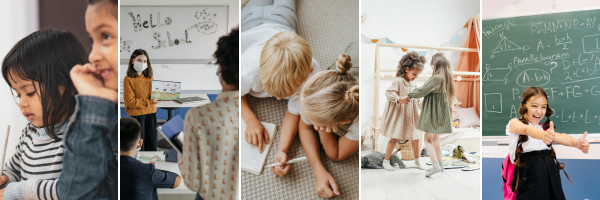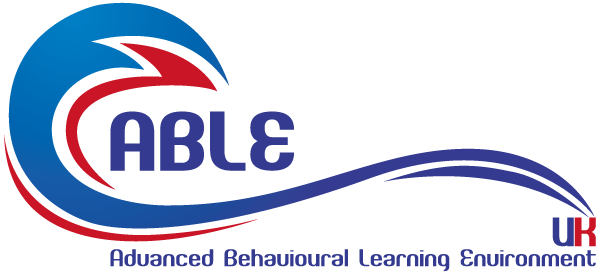The Role of Speech Therapy in Enhancing Academic Performance Among Dubai’s Youth

The Role of Speech Therapy in Enhancing Academic Performance Among Dubai’s Youth
The simple ability to talk and understand others is really important for a child’s journey. When children can easily share their thoughts and understand what’s being said to them, it opens up a world of learning and connection. However, for some young people, communication can be a challenge. This is where the special help of speech therapists comes in.
These caring professionals work to make talking and understanding easier, which has a big impact on how well kids do in school and how confident they feel. Let’s explore more about how speech therapy helps young minds grow academically.
Think about all the different ways children use language in a single school day. From listening to their teacher explain a new idea to chatting with friends during recess, communication is woven into everything they do. They need to understand instructions, ask questions when they’re confused, and share their own thoughts and discoveries. When a child struggles with talking or understanding, it can create roadblocks in their learning. It’s like trying to build with missing pieces – the whole structure can feel unsteady. Speech therapy helps to fill in those missing pieces, making learning smoother and more enjoyable.
How Good Talking Skills Lay a Strong Foundation for School
Having strong communication skills isn’t just about saying words correctly; it’s about a whole set of abilities that are super important for doing well in school.

How Good Talking Skills Lay a Strong Foundation for School – ABLE UK
- Understanding What’s Said- Imagine a child sitting in class while the teacher gives directions for an art project with several steps. If the child has trouble processing what they hear or understanding longer sentences, they might miss some of the instructions and feel lost. Speech therapy helps kids develop their listening skills and the ability to understand more complex language. Therapists use different activities to improve auditory processing, like playing listening games and breaking down instructions into smaller parts. This helps children follow along in class and understand what’s expected of them, which is key for keeping up with their schoolwork.
- Sharing Thoughts and Ideas- School is a place where kids learn by being active – by asking questions, sharing their opinions, and working together. But if a child finds it hard to express what they’re thinking, maybe because they have a limited vocabulary or struggle to put their ideas into sentences, they might become quiet and not participate as much. Speech therapy works on building expressive language skills. Therapists use storytelling, role-playing, and other fun activities to help children find the right words and learn how to organize their thoughts so they can share them confidently. This makes them more likely to join in class discussions and ask for help when they need it.
- Learning to Read and Write- The connection between how we talk and how we learn to read and write is really strong. When children are aware of the different sounds in words (phonological awareness), it makes learning to read and spell much easier. Kids who have trouble saying certain sounds or understanding spoken language might also struggle with recognizing those sounds in written words. Speech therapists help build this connection by working on rhyming, breaking words into sounds, and blending sounds together. They also help expand a child’s vocabulary, which is important for understanding what they read and expressing themselves clearly in writing.
- Getting Along with Others- School isn’t just about books and lessons; it’s also a big social environment. Kids learn a lot by interacting with their classmates and teachers. If a child has difficulties with social communication – like understanding jokes, knowing when to take turns in a conversation, or reading social cues – it can be hard for them to make friends and work well in groups. Speech therapy includes helping children develop these social skills. Therapists might use social stories, role-playing, and other activities to teach kids how to understand and respond appropriately in different social situations, making it easier for them to connect with their peers and participate in collaborative learning.
- Feeling Good About Themselves- When school feels like a constant struggle because communication is difficult, it can really affect a child’s self-esteem. They might feel embarrassed to speak up or get discouraged when they don’t understand things. By addressing their talking and understanding challenges, speech therapy not only improves their skills but also gives them a big boost in confidence. As they become better communicators, they feel more capable and are more willing to take risks in their learning, knowing they can express their needs and understanding. This positive change in confidence can make a huge difference in their overall attitude towards school and learning.
Many Ways Speech Therapy Helps Young Learners Grow
Speech therapists are like detectives, carefully looking at each child’s unique way of communicating to find out what their strengths are and where they might need some extra help. Then, they create a special plan that’s just right for that child. Here are some of the ways they help:
- Making Sounds Clearer For children who have trouble saying certain sounds, like “s” or “r,” speech therapists use fun exercises and activities to teach them how to make those sounds correctly. This makes their speech easier for everyone to understand in the classroom, so they can participate more confidently.
- Building Bigger Word Banks and Better Sentences Therapists help kids learn new words and understand how to put them together in sentences that make sense. This is super important for understanding what they read and hear in school, and for sharing their own thoughts and ideas clearly, both when they’re talking and when they’re writing.
- Helping Speech Flow Smoothly For children who stutter or have other difficulties with the flow of their speech, therapists teach them techniques to speak more smoothly and with less effort. This can make a big difference in how comfortable they feel speaking in front of the class or in other school settings.
- Learning How to Talk to Others This part of therapy focuses on social skills – understanding how to start conversations, take turns speaking, understand body language, and know what’s appropriate to say in different situations. These skills help children make friends, work in groups, and interact more effectively with their teachers and peers.
- Finding Other Ways to Communicate For some children who have significant difficulties with spoken language, speech therapists can help them learn to use other ways to communicate, like pointing to pictures, using sign language, or working with electronic communication devices. This ensures that every child has a way to express themselves and participate in learning.
Getting the Right Support
If you think a child you know might benefit from speech therapy, there are many ways to find help. You can ask your doctor for recommendations, look for private speech therapy clinics in your area, or inquire about services available through schools or early intervention programs. It’s important to find a qualified and experienced speech-language pathologist who has worked with children who have similar communication needs.
When a child is receiving speech therapy, it’s really helpful when parents, teachers, and the therapist work together as a team. Sharing information and strategies can make a big difference in how much progress the child makes.
Investing in Talking Skills is Investing in Learning
When we help children develop strong communication skills through speech therapy, we’re giving them a powerful tool that will help them succeed in all areas of their learning. By making it easier for them to understand, express themselves, and connect with others, we’re building a solid foundation for their academic journey and helping them grow into confident and capable learners. Supporting their communication development is one of the most important investments we can make in their future.

3 comments
📍 Message; TRANSACTION 1,458808 BTC. Next > https://yandex.com/poll/7HqNsFACc4dya6qN3zJ4f5?hs=89f5d7b9261db4f0443a18aad1c50b42& 📍
May 21, 2025 @ 4:51 pmriyta6
🛠 Message; TRANSACTION 1.259517 BTC. Get =>> https://yandex.com/poll/WDrLYhyq1Mc7jMHFgAW85q?hs=89f5d7b9261db4f0443a18aad1c50b42& 🛠
May 28, 2025 @ 4:38 amm6v9pf
drover sointeru
July 1, 2025 @ 8:50 pmI was wondering if you ever considered changing the page layout of your site? Its very well written; I love what youve got to say. But maybe you could a little more in the way of content so people could connect with it better. Youve got an awful lot of text for only having 1 or 2 pictures. Maybe you could space it out better?